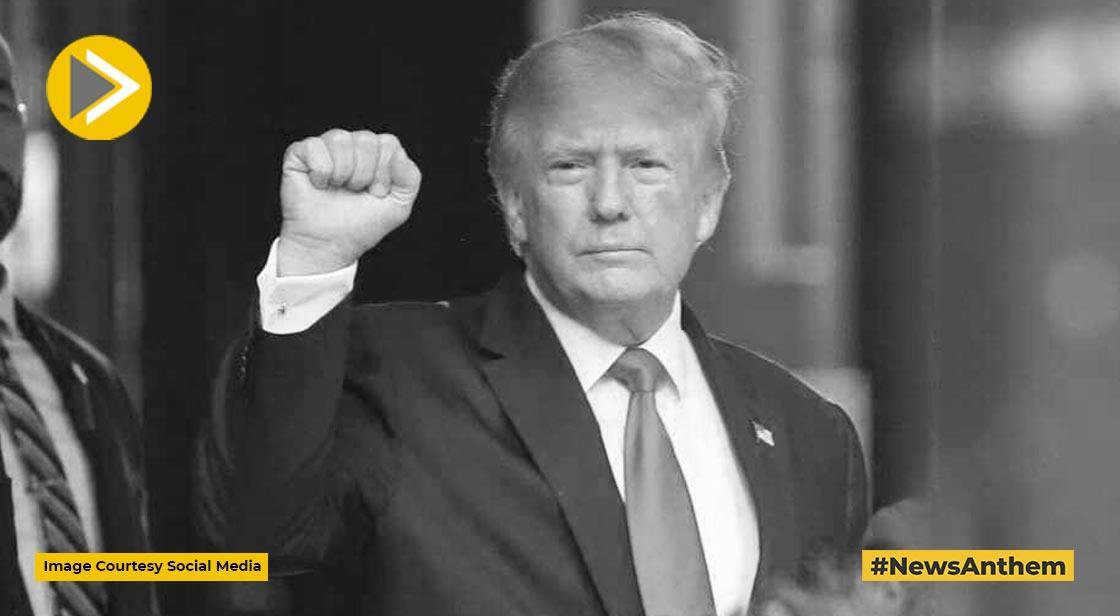Donald Trump’s Tariff Policy and Its Impact on the Crop and Chemical Industry

News Synopsis
The Trump-led administration’s recent announcement of reciprocal tariffs set to begin on April 2 is beginning to disrupt the global crop and chemical industries. According to a report by Kotak Institutional Equities, India’s exports of organic and inorganic chemicals in January 2025 dropped by 4.2% month-on-month (MoM) and 1.9% year-on-year (YoY). Meanwhile, imports surged by 9.7% MoM and 36.9% YoY.
In the US, chemical production declined by 1.2% in January 2025 due to the impact of Tropical Storm Enzo, though the overall three-month moving average still showed a 3.2% YoY increase. The ongoing trade war is adding strain to an already volatile industry, with potential long-term consequences for global supply chains and pricing structures.
How the US and Global Markets Are Reacting
The US is also feeling the repercussions of the tariff war, particularly in the agricultural sector.
Tariffs Affecting Crop Prices
"The tariff war has resulted in a dent in crop prices in the US but may have helped corn prices perk up in Brazil. In the chemical industry as well, the tariffs will likely have a bearing on end-demand as well as prices, though it is still too early for impact assessment. In the backdrop of an already-weak demand environment in the past couple of years, the added disruption caused by a tariff war is probably the last thing the chemical industry needed,"* stated the Kotak Institutional Equities report.
China’s Chemical Industry Booming Amid Global Slowdown
As the US chemical industry grapples with production challenges and tariffs, China continues to dominate global chemical production. Data from the European Chemical Industry Council (CEFIC) shows that China's chemical output grew by 9.1% in 2024, far surpassing global industry growth rates. Meanwhile, European chemical manufacturers remain cautious, citing weak demand and high production costs. Germany’s recent fiscal stimulus measures have, however, sparked hopes for a potential recovery in demand.
Impact of Tariffs on India's Chemical Industry
Disruptions to Indian Exports and Competitiveness
The reciprocal tariff policy is expected to reduce the competitiveness of Indian chemical products in the US, potentially leading to declining export revenues and job losses in the sector.
"Chemical railcar holdings—a measure of volumes—were up 4.2% YoY for the week ended March 1 and have been on the rise for 8 of the last 13 weeks. Data from CEFIC shows that China’s chemical output grew a strong 9.1% in 2024, far surpassing world output growth. Commentary by the European chemical industry for January 2025 remained downbeat, with demand weak and cost competitiveness challenged; however, Germany’s fiscal stimulus has lately kindled hopes of a demand recovery,"*the Kotak report highlighted.
Chemical and Fertilizer Price Trends
-
Refrigerant prices continue to rise in China, pushing up R32 import prices into India.
-
Palm oil prices remain high after India imposed duty hikes.
-
Caustic soda prices have recovered, but soda ash prices remain weak.
-
Phenol spreads in India and Asia are at decade-low levels.
-
Agrochemical prices are generally soft, except for 2,4-D and cypermethrin.
-
Pyroxasulfone prices are under pressure due to competition from generic suppliers like UPL.
-
Ammonia import prices into India fell, while urea import prices increased significantly.
How Tariffs Are Impacting Global Crop Markets
Tariff War’s Effect on Agricultural Commodities
Per the Kotak report, futures prices of corn, soybeans, and wheat fell by 6-9% in the US over the past month, reflecting the impact of tariffs on agricultural exports. Meanwhile, Brazil’s corn futures surged 10%, likely benefiting from the US-China trade dispute.
Climate Impact on Crop Yields
Adding to the pressure, India is bracing for one of its hottest March-May periods on record, as per the India Meteorological Department (IMD). This heatwave could threaten wheat yields, exacerbating food security concerns. Meanwhile, bird flu outbreaks have now been confirmed in nine Indian states, potentially disrupting poultry farming and associated agricultural industries.
How the Indian Government Is Responding
Diplomatic Efforts to Ease Trade Tensions
To address these looming tariff concerns, Commerce Minister Piyush Goyal recently visited the US for discussions on reducing trade tensions.
"The central government has expressed willingness to negotiate tariff reductions on certain industrial goods but remains protective of its agricultural sector to safeguard farmers’ interests,"* stated a report.
Potential Indian Retaliatory Tariffs
Any reciprocal actions by India, such as imposing tariffs on US agricultural imports, could disrupt domestic markets and affect Indian farmers. Policymakers are weighing their options carefully to balance economic interests while maintaining trade relationships with the US.
Conclusion: What Lies Ahead?
The impact of Trump’s reciprocal tariff strategy is beginning to unfold, with repercussions across India, the US, China, and beyond. While some countries like Brazil stand to gain, others are facing major disruptions in exports, pricing, and competitiveness. As discussions continue between India and the US, businesses and policymakers must prepare for continued volatility in the global chemical and crop industries.
You May Like









